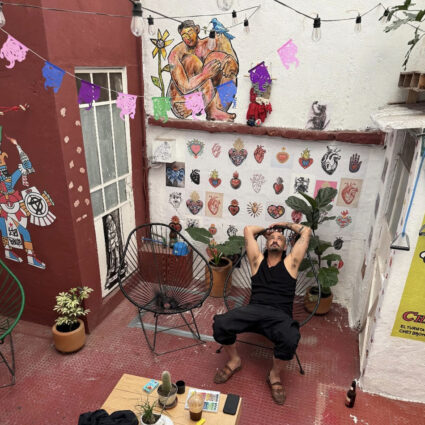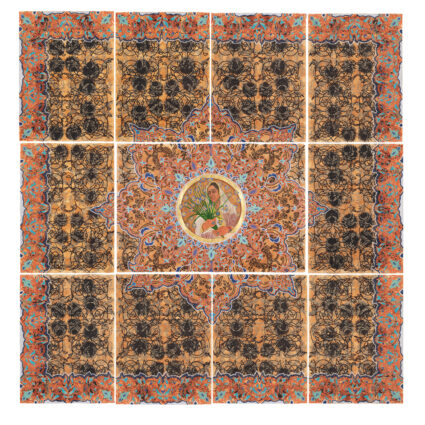The Project Freeway program by DiverseWorks in Houston amplifies the arts in the fast-growing city’s overlooked neighborhoods. It also provides artist fellowships to social-change and community-based practitioners.
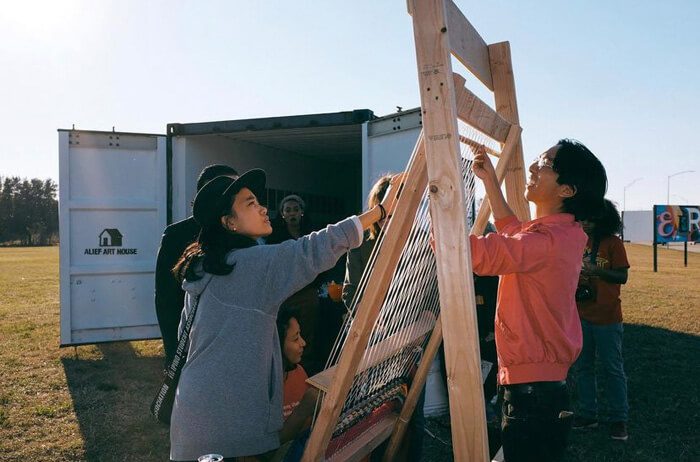
There’s a longtime debate in Texas that goes something like this: Dallas has the curb appeal but not the substance, while Houston, with its brutalist freeways and rapid gentrification (which is also impacting Dallas), is low on good looks but brimming with culture and food from all over the world.
The squabble is problematic on several levels, but there’s something that can’t be argued: Houston has undergone and continues to experience massive change. Several population growth and demographic studies predict Houston will usurp Chicago as the nation’s third-largest city within the next decade.
DiverseWorks, in response to the growth and diversification of the Bayou City, instituted Project Freeway in 2018. The multipronged initiative by the Houston-based arts organization is anchored by field visits to art-underrepresented neighborhoods outside of the so-called centralized creative zone, with the goal of contributing to a more socially progressive city.
Project Freeway is rounded out by a residency program with area artists who incorporate social change or community-based practices into their work and within their own neighborhoods.
Shortly after a 2015 move to its current space at the Midtown Arts and Theater Center Houston (MATCH), a sleek arts complex in Midtown Houston, DiverseWorks began embracing the bigger picture and thinking about how their flexible gallery spaces could benefit artists, especially those living outside of the Interstate 610 loop.
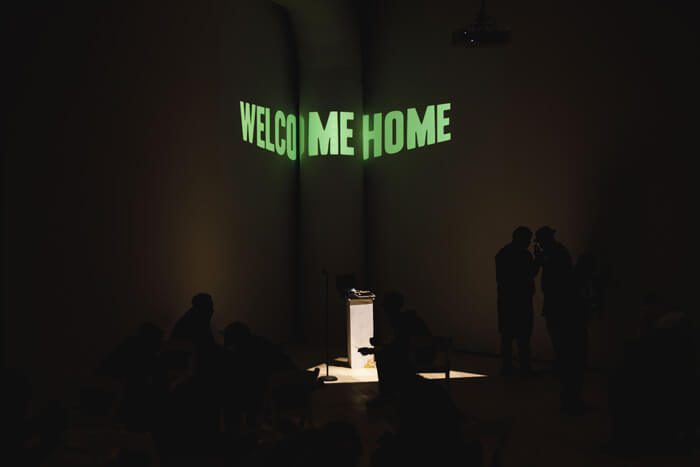
“Our world was still pretty limited in terms of its reach and the artists we were engaging with. We wanted to figure out how we could get beyond what has been considered the art scene in Houston,” says Xandra Eden, executive director of DiverseWorks, a mid-sized arts institution established in 1982. “We didn’t want to parachute into a neighborhood and present something because we weren’t interested in that kind of behavior. It’s truly collaborative.”
This summer, DiverseWorks’s program assistant Maya Nicole White and interns Perata Bradley and Gianna Ligotino are meeting with artists and community members in Gulfton. They’ve discovered hidden gems in the southwest Houston neighborhood such as apartment complexes facilitating art projects, a strong presence of Pakistanis in addition to the Latinx community, and a local theater that produced an all-Cantonese language play.
“I think the most beautiful thing about this process has been learning not how we can come into the neighborhoods and reproduce what’s happening, but how it’s already happening there,” says White.
Project Freeway, which received funding for its first two years from the Kellett Foundation and EmcArts via Houston Arts Alliance, continues to grow and develop, with the Project Freeway Fellowship as a central component. Willow Curry (Kashmere Gardens), Matt Manalo (Alief), Jeffrey Bussey (Highway 288/Museum District), and The Black Man Project founder Brian Ellison (Third Ward), who was able to thrive in his fellowship despite pandemic limitations, have participated in the six-month program.
DiverseWorks expects to open applications for the next round of fellows later this year.
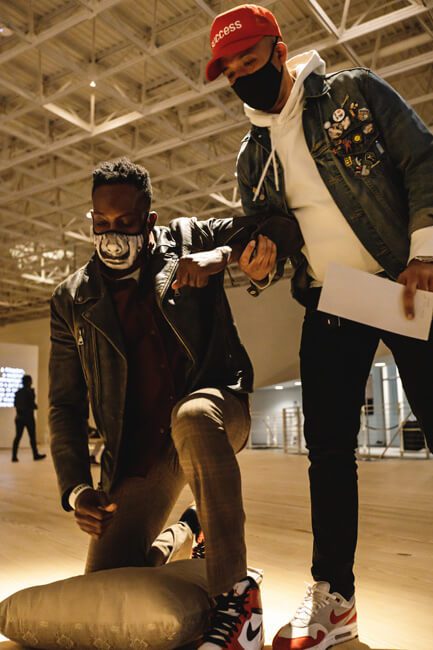
Filmmaker Ellison, who’s the director and producer of the film UnMASKulinity, anthropologist Marlon Hall, and sculptor Anthony Suber have traveled the nation documenting stories of Black masculinity for The Black Man Project. Ellison’s Project Freeway fellowship culminated in UnMASKulinity | Rite of Passage | Values of A Meal, a powerful and emotional one-day installation and discussion at Contemporary Arts Museum Houston (CAMH) on December 3, 2020.
“Transformative relationships were formed out of Project Freeway. A lot of healing, therapy, and tears, especially with what was going on at the time,” says Ellison in reference to George Floyd, who grew up in the historic Third Ward and graduated from Yates High School before moving to Minnesota. “I think a lot of people needed a release.”
For the fieldwork component of Project Freeway, Eden of DiverseWorks is happy that some of Houston’s farther-flung communities are gaining recognition for something other than food. “I think for a lot of Houstonians, their experience of certain neighborhoods is just visiting to go to a restaurant,” she says.
